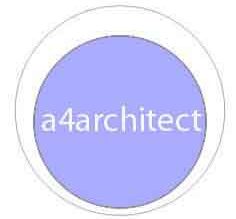KENYA EDUCATION SYSTEM: EMBRACING INTERNET TO REDUCE COSTS.
Kenya spends a lot of its revenue on education.
The education system used in Kenya requires major structural changes to reflect the changing times and adapt to new challenges.
As a Kenyan rightfully stated:
‘The problem with Africa is it produces what it doesn’t consume and consumes what it doesn’t produce’.
PORTUGAL.
Kenya should borrow heavily form the Portugal System of education.
In Portugal, the system was much like Kenya’s, with all students going through a set curriculum, much like Kenya’s 8-4-4- system.
After the Portuguese Government realized that the system was only producing unemployed graduates with undergraduate, masters and PHD degrees.
The solution was to create an education system that would provide various exit points and allow for early specialization.
This way, no resources will be lost in training millions of students in curriculum subjects that they will never use in their lifetime.
This creates a complete strain on the country’s budget and churns out millions of unemployed graduates in the long run.
MOBILE PHONE REPAIR.
Take an example of mobile phone repairing. The thousands of mobile phone repair shops across all towns in Kenya are run by people who developed a passion to repair phones after completing the basic Primary or Secondary school education. There is no formal training for this. However, there are millions of video tutorials available for free online. Self-initiative in learning new technology as it comes is the main driving force. With the entrant of Google android phones in the market which are different from the popular symbian phones, it will not require a masters or PHD degree to gain the knowledge to repair. All it will require is the basic primary school education plus a self-initiative drive to learn this new technology online through video tutorials on Youtube.
In the Kenyan situation, most families will struggle to put their children through the expensive secondary schools. These children will learn subjects that they will never use in their life times at the expense of their parents and the country as a whole.
EARLY SPECIALISATION.
The Curriculum needs to include options whereby students want to start specializing in a certain sector early. If a child’s dream is to become a gadget repair technician, this could be handled within a set education system as opposed to the current situation whereby as such students are left to grope for this solution without Government’s guidance.
If a child’s dream is to become a doctor/medial sector, they should be given a chance to specialize in medicine early enough –possibly within the upper Primary to Secondary school level.
This will help to produce students who possess skills that can put bread on the table after completing secondary school.
As it is, a secondary school graduate in Kenya can at best work as a cyber café attendant. The amount of resource put into training the secondary school graduate is so huge compared to the output after graduation due to poor training in subjects they will never use in their lives.
ARCHITECTURE.
In a field lie Architecture for example, many new Computer Aided Design software complete with online video tutorials are present. All of them offer a free student-version download and tutorial.
A keen student in this field might want to start specialize in as early as secondary school stage. This means that by the time they graduate from secondary school, they will possess a skill that can be of value to fellow Kenyans as opposed to the current 8-4-4 system grandaunts. This resonates in many other disciplines that Kenyan students may want to specialize in.
Architect Francis Gichuhi Kamau.
www.a4architect.com
+254721410684


Leave a Reply